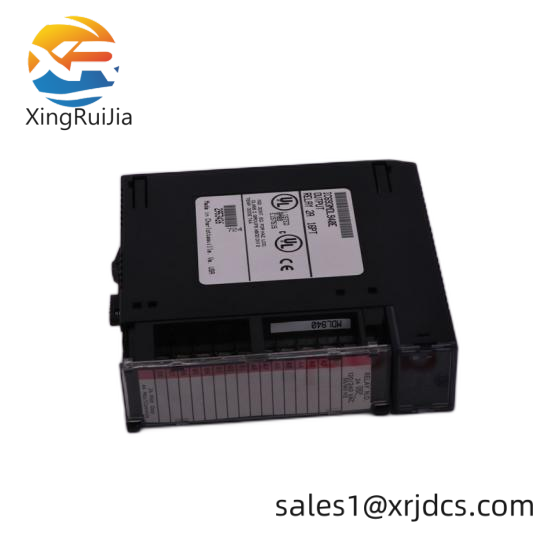Technical Parameter
Brand:GE
Model:IC600CP620L
Place of Origin:USA
Input Voltage:24 VDC
Channels:16
Certification:CE, RoHS
Compatibility:GE Fanuc PLC Systems
Weight:0.5 kg
Dimensions:3.94 x 2.36 x 1.18 inches
Product Introduction
The GE IC600CP620L is an essential component for any modern industrial control system.
With its robust design, this module can withstand harsh environmental conditions, ensuring consistent performance.
It supports direct current input voltage, making it versatile for various applications.
The module’s IP67 protection rating guarantees dust-tightness and water resistance, making it ideal for outdoor or wet environments.
Its CE and RoHS certifications ensure compliance with European standards, providing peace of mind for international projects.
Compatible with GE IC620 series, it seamlessly integrates into existing systems, enhancing overall efficiency and reliability.

Annual hot selling advantage products:
ABB PM665、ABB S-073N、ABB S-123H 3BHB030479R0512
First hand source, affordable price. Spot inventory!
•Shipping Port: Xiamen
•Ship to you via Fedex/DHL/TNT/UPS/EMS
•Package: Original packing with cartons
What is a DCS?
A Distributed Control System (DCS) is a sophisticated, computer-based control system designed to automate, monitor, and manage complex industrial processes. It is widely used in large-scale industrial facilities such as refineries, power plants, chemical plants, and paper mills, where precision, reliability, and scalability are critical.
How Does a DCS Work?
A DCS is composed of several interconnected components that work seamlessly to ensure efficient process control. Here’s a breakdown of its key elements:
- Controllers:
These are the “brains” of the system. Controllers receive data from sensors, process it using pre-programmed logic, and send output signals to actuators to maintain optimal process conditions. - Sensors:
Sensors act as the “eyes and ears” of the system, measuring critical physical parameters such as temperature, pressure, flow rate, and level. This real-time data is essential for accurate control. - Actuators:
Actuators are the “muscles” of the system. They execute physical actions based on controller commands, such as opening/closing valves, starting/stopping motors, or adjusting dampers. - Operator Stations:
These serve as the human-machine interface (HMI), allowing operators to monitor the process, adjust setpoints, and troubleshoot issues. Modern DCS systems often feature intuitive graphical interfaces for ease of use. - Communication Network:
The backbone of the DCS, this network connects all components, enabling seamless data exchange and coordination. It ensures that every part of the system works in harmony, even across large industrial sites.
Why is a DCS Important?
- Centralized Control with Distributed Execution: A DCS allows for centralized monitoring while distributing control functions across multiple controllers, reducing the risk of system-wide failures.
- Scalability: It can easily expand to accommodate growing operational needs.
- Reliability: Redundant systems and fail-safes ensure continuous operation, even in critical environments.
- Efficiency: Optimizes processes, reduces waste, and improves overall productivity.














There are no reviews yet.